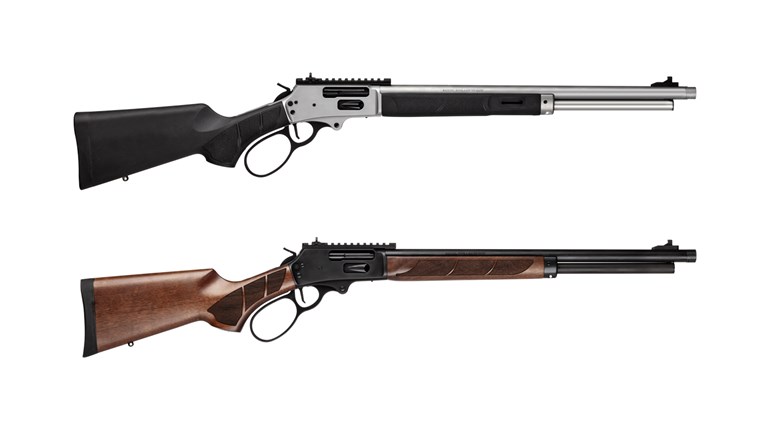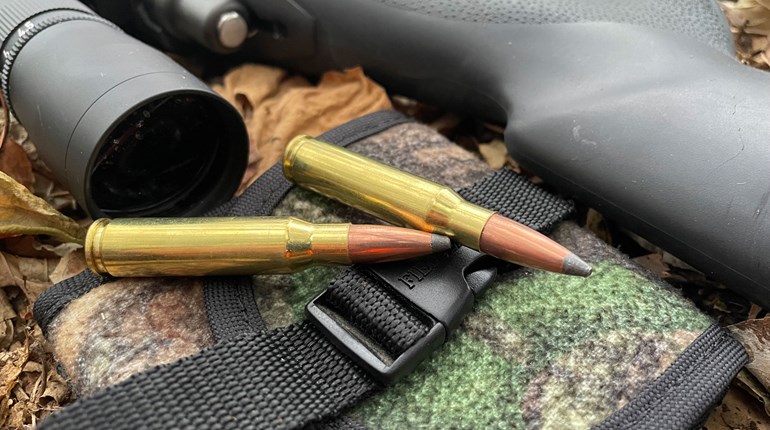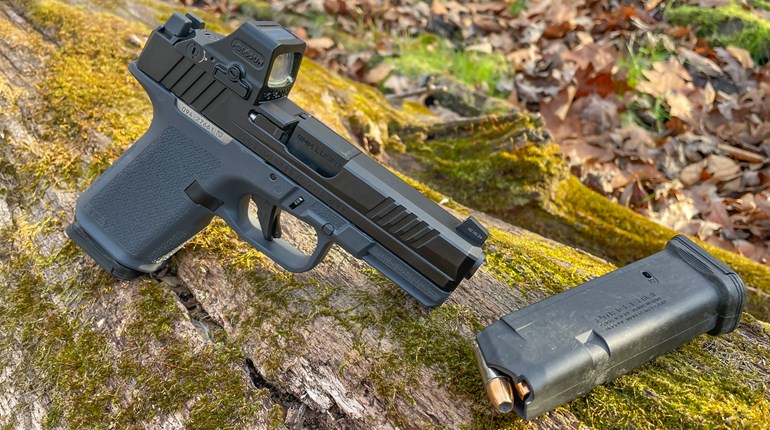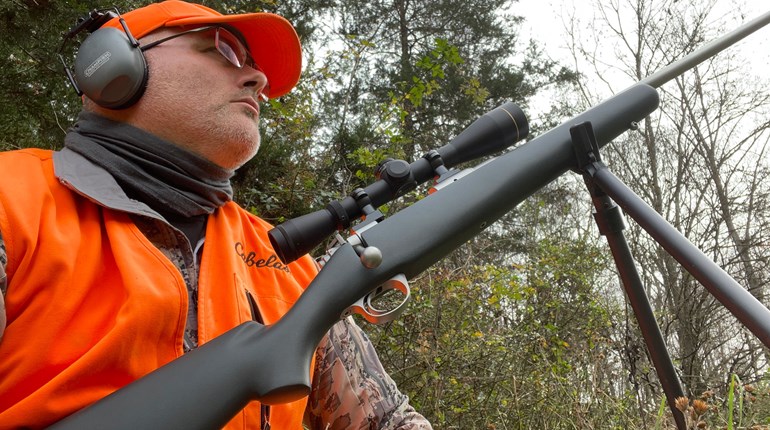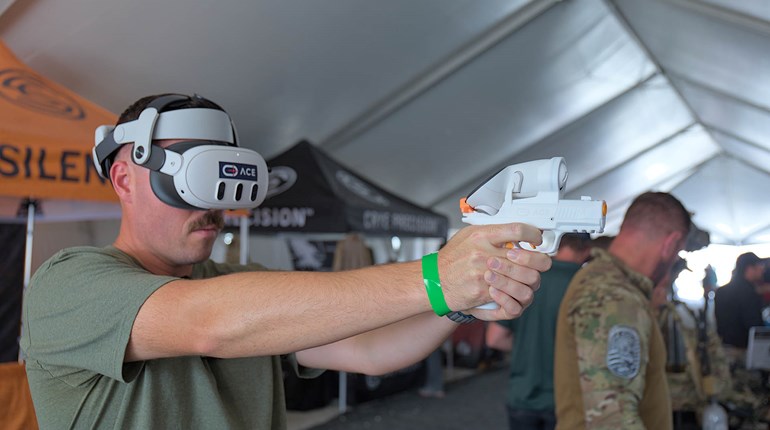
What sets the Savage Model 12 LRPV apart from other heavy barreled rifles? The Model 12 LRPV has a left port, right-hand bolt design. This is achieved by using a standard right-hand bolt with a left-hand bolt head, thereby positioning the extractor and ejector to achieve left-side ejection. This configuration allows right-handed shooters, who are naturally positioned on the left side of the rifle, to use their left hand (or free hand when shooting from a rest) to feed a cartridge into the loading port without removing the right hand from the bolt. Loading in this manner also allows the shooter to watch the cartridge into the chamber without breaking the cheek weld.
The bolt body on 2006 Model 12 LRPV models is alloy steel left in the white, while that on the 2007 version will be jeweled. To provide extra leverage when operating, the stainless steel bolt handle is oversized.
Because accuracy is often more important than rate-of-fire when varmint hunting, Savage designed the Model 12 LRPV as a single-shot instead of a repeater. This configuration eliminates the gaping hole typically cut into the receiver and stock belly to facilitate a magazine. As a result, the action and stock are stiffened, thereby enhancing accuracy. Since there is no magazine, Savage added a third screw to further secure the receiver to the stock-again contributing to accuracy. The loading port is the minimum size required for successful loading and ejecting, further stiffening the receiver. There were no problems feeding or ejecting encountered during testing.
The Model 12 LRPV has a free-floated, button-rifled, 26-inch stainless steel barrel that maintains a 1-inch diameter along its entire length. This contributes significantly to the rifle's 12-pound overall weight. To protect the rifling from nicks and scratches when afield or during transport, the barrel has a recessed, target-style muzzle crown. Rifling twist rates for the original Model 12 LRPVs are 1:9 for .223 Remington, 1:12 for the .22-250 Remington and .204 Ruger. This year's new additions include 1:7 in .223 Remington and 1:9 in .22-250 Remington. The faster rifling properly stabilizes longer match bullets that are often encountered at competitions.
Housing the barreled action is a black, hand-laid H-S Precision Varmint stock capped with a .70-inch-thick rubber recoil pad. Though recoil is close to nil in a rifle of this caliber and weight, any pad is a welcome addition. Unseen without removing the barrel is an aluminum bedding block that extends from the front of the receiver where the precision-ground recoil lug juts through the wrist of the stock. The straight-comb stock has a slight palm swell and widens just in front of the receiver to provide a wide surface to rest on a sandbag. Completing the stock are sling swivel studs.
The "go-switch" on the Model 12 LRPV is Savage's AccuTrigger. Any 2006 leftovers will have an AccuTrigger that adjusts from 1.5 to 5.5 pounds, while the 2007 version will have an orange-colored, precision-target rendition that adjusts incrementally from 6 ounces to 3 pounds. A tool accompanies the rifle to make adjustments. The rifle's safety is a standard, tang-mounted, three-position configuration and is easily thumbed without adjusting grip.
Accuracy Testing
Very few rifles require the shooter to measure three-shot, 100-yard groups with only the first .5 inch of a ruler. With the exception of a single, three-shot group of .5625 inch, no other groups exceeded .5 inch in my testing (see accuracy chart). That kind of performance is seldom found, period, so at $967 the Model 12 LRPV is a real bargain.
A light trigger on a target rifle is a must. My hunting rifles all have triggers with let-off weights in the 2 to 3.5-pound range, which I feel is just about right. Guns destined for the bench are a different story. I admit it took some getting used to the test rifle's 6-ounce AccuTrigger pull weight. Not that I am complaining about a lightweight, creep- and overtravel-free trigger, but the shooter must be extremely careful and must not put a finger near the trigger until absolutely ready to shoot. Most shooters will not be prepared the first time out with this trigger. With a trigger this sensitive, slamming the bolt home can cause the trigger sear to disengage. The firing pin will not fall in such cases (therefore the rifle didn't fire accidentally in my tests), but the hammer had to be reset by working the bolt. With the trigger set at 6-ounces, the bolt should be worked smoothly and not slammed.
Superior accuracy is not something magical; instead, it is the direct result of careful design, attention to detail, high-quality components and meticulous manufacturing right through to the final product-all of which are evident in the Model 12 LRPV. The culmination of many accuracy-enhancing features have now been combined into one amazing rifle for the benchrest or prairie dog town.












